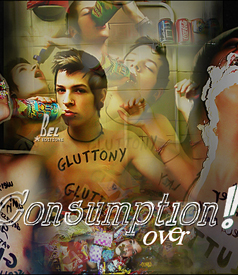Whether the Copenhagen meeting concludes in “failure” or “success” is a rather secondary question. For this dramatic moment is no finale, but the moment when the powerful forces moving below the surface of the news, when the long pulsations of the human adventure emerge.
What is it all about, really? It’s the dramatization of the contradiction which has been forged throughout the entire industrial revolution between economic rationale and ecological limits. The development of productive forces led to a never-before-achieved level of collective material wealth and labor productivity, but at the cost of massive destruction to the natural environment. Imperceptible at first, it now begins to disturb the operation of the biosphere, threatening to shatter the ever-fragile balance of tensions that characterizes human societies.
What is the issue now for the civilization that has become global? To allow this contradiction to intensify at the risk of chaos. Or to reduce it and transform our productive forces – now become destructive, in fact – so as to reestablish a perpetual balance between human activity and the biosphere. Actually, to express a new development: one that will no longer be material, but mental, cognitive, relational. Or, if I may use a provocative term: development that will be spiritual.
How does the landscape immediately before us look, compared to that perspective? The contradiction expresses itself by the fact that social peace depends on over-production that exacerbates the environmental crisis. As a report on China published November 28 by the European Economic Chamber (“Overcapacity in China”), revealed, the Middle Kingdom is in a state of massive overproduction, intensified by reflationary measures at the beginning of 2009 that increased manufacturing capacities still further.
China may maintain its precarious social peace only at the cost of frenetic growth. But that growth depends on Western countries’ consumption capacity, which has reached its limit due to those countries’ indebtedness. Indebtedness, moreover, is nothing but another name for overconsumption. Yet no leader, on one side or the other, dares to question either overproduction or overconsumption: that would involve an upheaval in the social order, characterized today by great inequality on both sides.
Now, in the short term, greenhouse gas emissions cannot be reduced except by reducing material production in favor of less-polluting activities.
That’s the essence of the contradiction Copenhagen illustrates. We must resolve it in some way other than by widespread social explosion or war.
But that contradiction will not be resolved without a reduction in inequalities, the key to a less-destructive economic policy.
Translation: Truthout French Language Editor Leslie Thatcher.
Join us in defending the truth before it’s too late
The future of independent journalism is uncertain, and the consequences of losing it are too grave to ignore. To ensure Truthout remains safe, strong, and free, we need to raise $43,000 in the next 6 days. Every dollar raised goes directly toward the costs of producing news you can trust.
Please give what you can — because by supporting us with a tax-deductible donation, you’re not just preserving a source of news, you’re helping to safeguard what’s left of our democracy.
